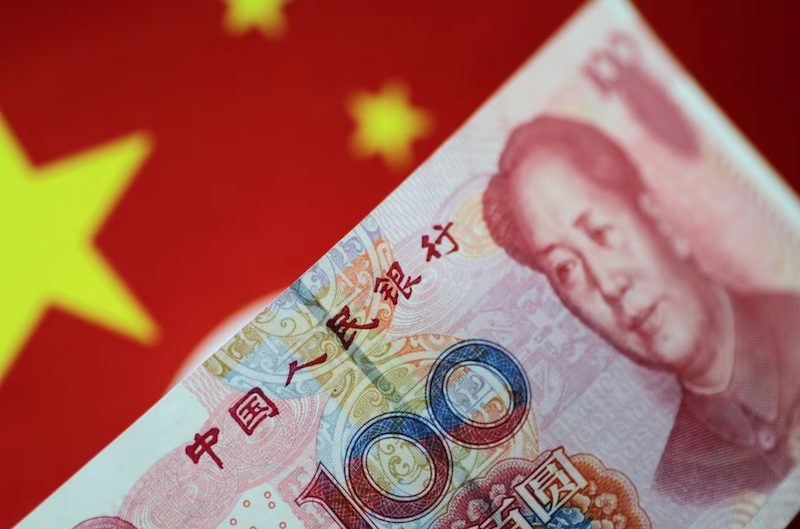Beijing is bidding to avert a $13 trillion provincial debt crisis that threatens to spill over into its wider economy, with at least 10 of its regional governments thought to be staring into the financial abyss.
China’s state council, the country’s cabinet, has reportedly sent crack teams of officials to the weakest provinces to review their accounts and find ways to cut their debts.
Debt-laden municipalities represent a major risk to China’s economy and financial stability, economists are warning, after years of over-investment in infrastructure, plummeting returns from land sales and soaring Covid-19 costs.
Goldman Sachs has estimated that China’s total local government debt pile stands at 94 trillion yuan ($13 trillion), including the liabilities from off-balance sheet entities known as local government financing vehicles.
Also on AF: China’s New Bank Loans Plunge in July, Amid Crop Concerns
LGFVs saw a surge in use over the last decade as infrastructure and property spending fuelled booming economic growth, which also resulted in many ill-advised and vanity projects.
The International Monetary Fund estimates 66 trillion yuan ($9.1 trillion) in total debt is held by LGFVs, which cities use to raise money for infrastructure projects critical to the country’s development.
But some analysts say they have become the “black holes” of the country’s financial system, with surging debt loads and weak revenues beginning to alarm investors.
Chinese leaders last month pledged to unveil a “basket of measures” to tackle local debt risks, without announcing details, signalling worries that a potential chain of municipal debt defaults could destabilise the financial sector and put more pressure on its sputtering economy.
Policy advisers and economists have said measures are likely to include debt swaps, loan rollovers and possible debt issuance by the central government to bail out some localities.
China will reportedly let local governments raise about 1 trillion yuan ($140 billion) through bond sales to repay their LGFV debts.
However, that would be a small step – 1 trillion yuan is just 1.5% of the estimated total LGFV debt.
LGFV Bond Rescue Plan
The move, which mirrors an earlier scheme, will allow local governments to issue bonds at an interest rate of around 3%, to replace expensive LGFV debt. Some cities and LGFVs pay 7-10% interest.
From 2015 to 2018, local governments issued some 12 trillion yuan of bonds to swap for off-balance sheet debt, but liabilities have continued to climb.
Local government debt rose to 92 trillion yuan, or 76% of economic output, last year from 62.2% in 2019.
No LGFV in China has defaulted in the public markets, but delinquencies in the private market are increasing. Big state-owned banks have recently rolled over loans to LGFVs or lent more to them.
Typically, Chinese banks are the largest buyers of local government bonds and they also issue the largest amount of loans to local entities.
“We believe that commercial banks rather than the central government will bear most of the costs of local government debt restructuring,” analysts at ANZ said in a note in late June, adding they did not expect a large number of defaults in the near term.
Country Garden Woes Deepen
The finances of LGFVs have deteriorated alongside a severe slump in China’s property sector, which has caused a growing number of developers to default on their debts.
Municipalities’ main source of revenues – land auctions to developers – fell off a cliff at the same time their spending needs rose sharply to cope with pandemic spending.
News that big developer Country Garden was not able to make $22 million in bond payments was another alarm call for China’s government that more private property companies are close to a tipping point if financial support doesn’t materialise soon.
Country Garden was the largest developer in the country before this year, and its missed payments could prod regulators into rolling out stronger aid measures, but they had little faith such steps would turn the debt-laden sector around any time soon.
China’s property sector, which accounts for a quarter of the economy, has already seen a string of debt defaults by cash-squeezed developers since late 2021, with China Evergrande Group, the world’s most indebted property developer, at the centre of the crisis.
Contagion fears in the market re-surfaced last month when four high-profile developers signalled liquidity stress amid slumping home sales nationwide.
Problems are even spreading at state-backed developers, which are seen as having better access to cheap funding and are more likely to benefit from government support.
- Reuters with additional editing by Sean O’Meara
Read more:
China Property Crisis Intensifies, Cloud Over Country Garden
China’s Cash-Strapped Wuhan Calling in Its Debts – CNN
China’s Debt-Laden Property Sector Still Facing Weak Demand
China Evergrande Debt Rejig Will Cost Billions, Could Still Fail























